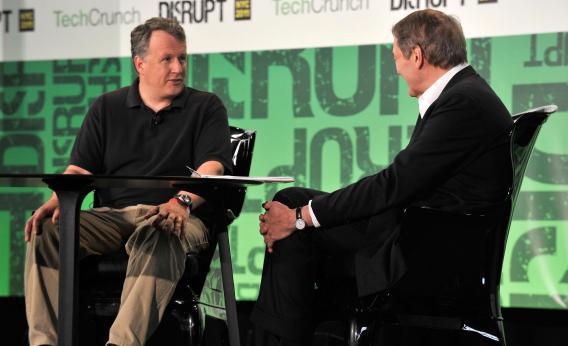Each month in “The Six-Point Inspection,” Future Tense and Zócalo Public Square take a quick look at new books that are changing the way we see our world.
The Launch Pad: Inside Y Combinator, Silicon Valley’s Most Exclusive School for Startups by Randall Stross
The nutshell: New York Times columnist Stross spent a year observing the summer camp/graduate school/boot camp/incubator that is Y Combinator, a Silicon Valley program that brings together founders of promising startups for three months of networking opportunities, advice, and seed money.
Literary lovechild of: Ben Mezrich’s The Accidental Billionaires: The Founding of Facebook, A Tale of Sex, Money, Genius and Betrayal and H.G. Bissinger’s Friday Night Lights: A Town, a Team, and a Dream.
You’ll find it on your bookshelf if: You have 17 Kickstarter projects in the works, you’ve invested in 23 other Kickstarter projects, and you are, frankly, a little bit douchey.
Cocktail party fodder: Only two venture capital firms invested in Google—not at the beginning but after the company was valued at $75 million.
For optimal benefit: Swing yourself an invite to a Y Combinator session, then make off with the seed money.
Snap judgment: Stross makes computer programming and angel investing as thrilling as it gets—and, although he admires Y Combinator chief Paul Graham, he’s not afraid to ask questions, like why there were only two women in the summer 2011 class of founders.
Regenesis: How Synthetic Biology Will Reinvent Nature and Ourselves by George Church and Ed Regis
The nutshell: Harvard geneticist Church and science writer Regis combine science history and futurism in an exploration of how genomic modification will change the world.
Literary lovechild of: Gina Kolata’s Clone: The Road to Dolly and the Path Ahead and Lewis Thomas’ The Lives of a Cell: Notes of a Biology Watcher.
You’ll find it on your bookshelf if: The idea of people cloning DNA in garage labs doesn’t bother you at all. Not at all.
Cocktail party fodder: Once materials are produced synthetically, even the most expensive pharmaceutical ingredients—which can cost up to $4 million per kilogram—will be available for 20 cents per kilogram.
For optimal benefit: Stay away from the science fiction horror film genre (especially Splice) before, after, or while you read.
Snap judgment: None of the science is dumbed down or simplified for laypeople—mostly a good thing, but sometimes it’s tough to absorb.
The Digital Rights Movement: The Role of Technology in Subverting Digital Copyright by Hector Postigo
The nutshell: Temple University Internet scholar Postigo explores the implementation of the 1998 Digital Millennium Copyright Act, which increased the penalties for using technology and the Internet to subvert copyright.
Literary lovechild of: Lawrence Lessig’s Code and Other Laws of Cyberspace and Siva Vaidhyanathan’s Copyrights and Copywrongs: The Rise of Intellectual Property and How It Threatens Creativity.
You’ll find it on your bookshelf if: You’re a copyright lawyer, a computer hacker, or a serial plagiarist.
Cocktail party fodder: Apple’s early ad campaign for iTunes (“It’s your music … rip, mix, burn”) was at odds with its employment of a digital rights management system that kept users from ripping music—or playing tunes on too many devices.
For optimal benefit: See if you can download this book for free on a BitTorrent site.
Snap judgment: Postigo is informed, technical, and admirably evenhanded, and The Digital Rights Movement is free of proselytizing.
Previous Six-Point Inspections:
September: Unfit for the Future, Automate This, and This Machine Kills Secrets.
August: Resilience, Interop, and Green Illusions.
